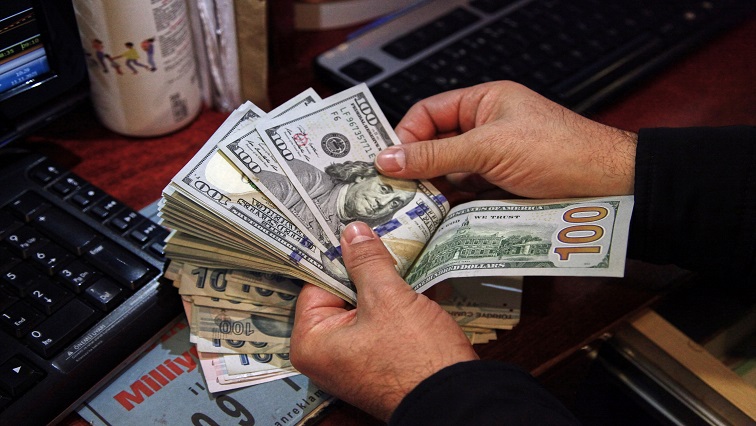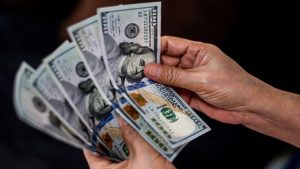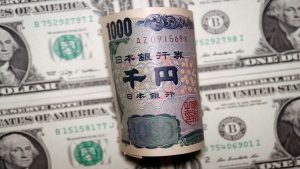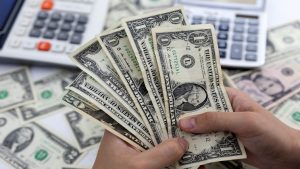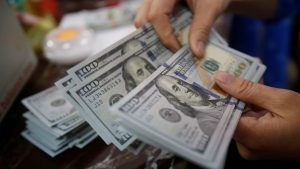The dollar headed for its biggest weekly drop in five months on Friday as the prospect of rate cuts from the Federal Reserve versus a tough line from central banks in Europe on monetary policy fed weekly gains in the euro and the pound.
The Bank of Japan is the last of the major central banks to meet this month and the question among traders and investors is whether or not it will signal its intention to ditch its policy of keeping interest rates at rock-bottom next week.
In an action-packed week for central banks this week, traders found more clarity on when interest rate cuts were likely after Federal Reserve Chair Jerome Powell said that the tightening of monetary policy is likely over, with a discussion of cuts coming “into view”.
The divergence between the Fed and other central banks set the dollar index on track for a near 2% slide this week, its largest weekly loss since mid-July, to around its lowest in four months. It was last up 0.1% at 102.08.
Futures markets show investors are now pricing in a 75% chance of a US rate cut in March, according to the CME FedWatch tool. At the start of December, there was around a 40% chance of a cut.
Markets expect US rates to fall by 150 basis points by the end of next year, double the Fed’s projections that imply 75 basis points of cuts.
The prospect of such a benign rate environment has ignited a rally across risk assets over the past 24 hours, at the expense of the dollar. But the mood may not last, as the US economy is slowing, while inflation is still above target, analysts said.
“There was an element of surprise – the extent to which the Fed has gone with giving the market what it wants. Christmas came early,” City Index strategist Fiona Cincotta said.
Financial markets are pricing in a steep drop in rates, but not the economic pain that might come from the kind of slowdown in activity that it may take to bring core inflation back to the Fed’s 2% target.
“There is potential for some further US dollar weakness, but I think the concern is that if the Fed does let up too quickly, we can get that return in inflation. It’s a scenario we have seen before and it’s going to weigh on investors’ minds – not immediately, as we’re still in the euphoria of the decision,” Cincotta said.
DIVERGING VIEWS
On Thursday, the European Central Bank and the Bank of England took a different path to the Fed, pushing back against bets on imminent cuts to interest rates and reiterating their focus on the fight against inflation.
Investors are nonetheless still betting heavily on rate cuts from both central banks next year.
The ECB has more scope than most to ease, according to Pepperstone strategist Chris Weston, given low growth and a rapid decline in inflation.
“However, the pushback from (ECB President) Lagarde and co suggests conjecture on the timing of initial easing – perhaps this is a function that its desirable to keep one’s currency strong to limit imported inflation.”
Preliminary readings of business activity in France and Germany on Friday showed an unexpected slowdown in the euro zone’s two largest economies this month, sending the euro down by as much as 0.4% to a session low of $1.0946. It was last at $1.0958, still up 2% this week.
Sterling eased 0.1% to $1.276, having surged 1.1% to a four-month high of $1.2793 on Thursday after the BoE’s hawkish tilt.
Meanwhile, the Japanese yen strengthened 0.16% to 141.60 per dollar, having risen 0.7% to a four-and-a-half month high of 140.95 on Thursday.
The yen is up 2% this week, set for a fifth straight week of gains against the dollar, its longest such stretch since mid-2020.


